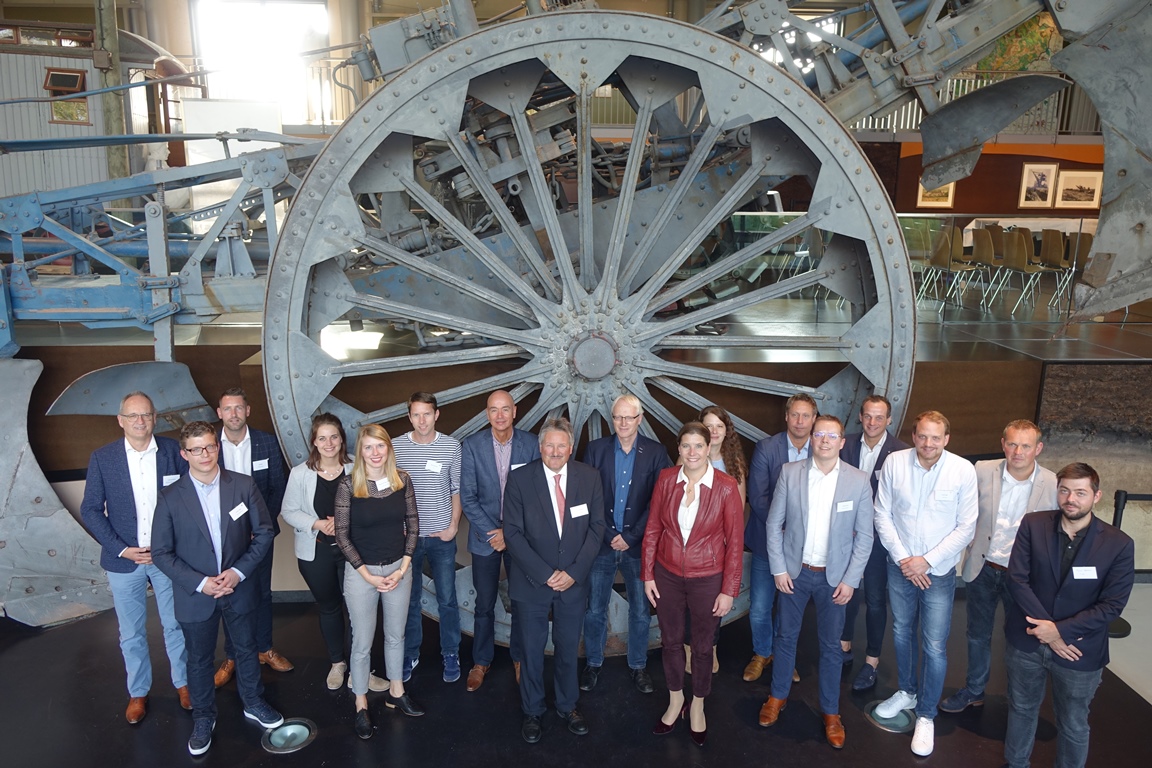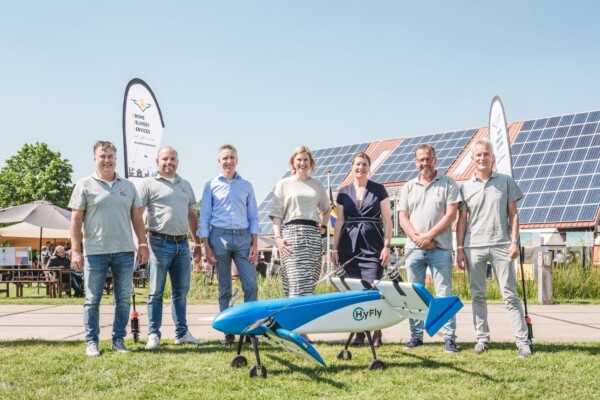The Province of Groningen launches the ‘Kontactlo(o)s Laden’ (Wireless Power Transfer) Project together with German and Dutch partners.
| Realising innovative and sustainable solutions for wireless charging of e-bikes, e-scooters and autonomous vehicles. That is the goal of the ‘Kontactlo(o)s Laden’ Project: a collaboration between 13 Dutch and German companies which was officially launched on 17 October by Provincial Executive Member Fleur Gräper-van Koolwijk together with her German colleague Reinhard Winter, the highest governmental official of the German Emsland District. The project, which will run till the end of 2020 and create about 20 jobs, is funded by the Provinces of Groningen and Drenthe and the Emsland District as well as through a European subsidy. |
Sustainable movement set in motion
Provincial Executive Member Fleur Gräper-van Koolwijk: “We are launching an amazing project here, which shall focus on the application of innovative and sustainable technology regarding mobility. It is a first joint step within a major (cross-border) development process regarding electric driving”. Reinhard Winter, the highest governmental official of the German Emsland District, adds: “We are not so much interested in short term success when it comes to electric wireless charging as we are trying to initiate a sustainable movement here.”
Development and testing
The project focuses on the development as well as field testing of innovative charging systems. For instance, one of the project goals is realising a built-in wireless charging system in a bicycle parking space, while a scooter and Drymer pooling try-out has also been scheduled at the Moor Museum in Germany. In addition, wireless charging shall be tested generally in autonomous vehicles such as the autonomous tiny bus currently in service near the Ommelander Ziekenhuis in Scheemda. These pilots are scheduled for 2019 and 2020.
Travelling convenience and economic opportunities
The charging systems are well applicable in daily practice. It offers users of electric vehicles great travelling convenience. It is for this reason that the companies participating in this project see economic opportunities. The fact that cross-border collaboration is involved here, only reinforces matters. The project was made possible due to an investment by the involved partners and a European INTERREG subsidy.



